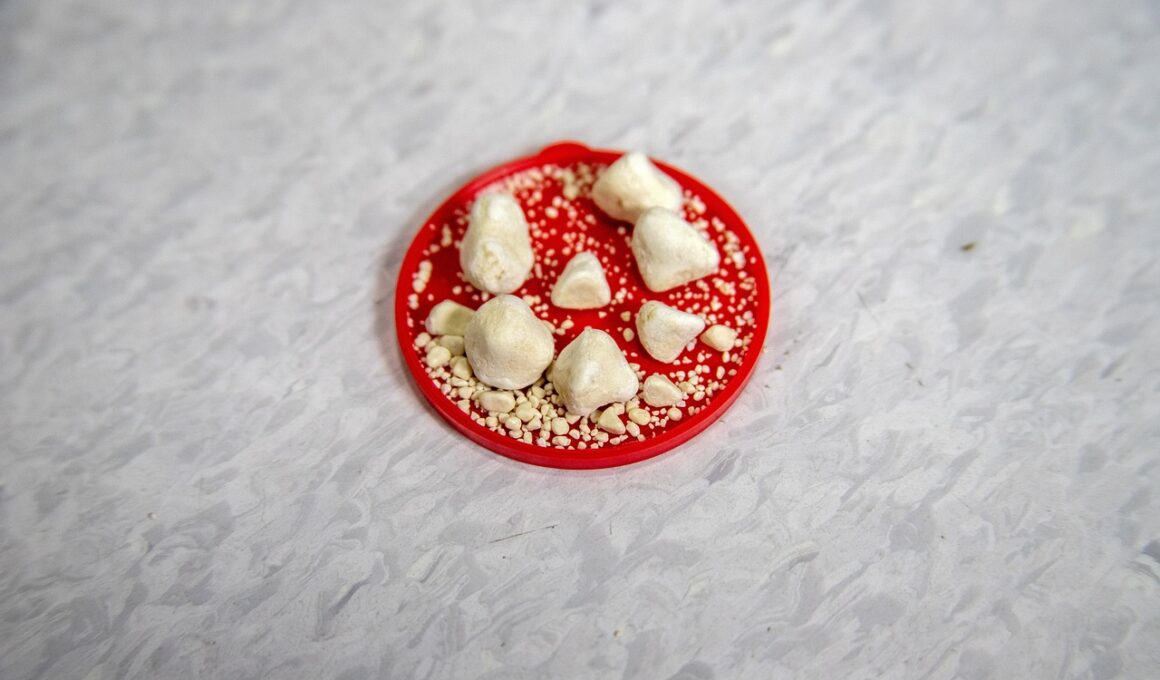Recognizing and Managing Bladder Stones in Cats
Feline health issues often include urinary problems, specifically bladder stones, known as uroliths. These mineral formations occur in the bladder, impacting a cat’s ability to urinate properly. Common symptoms of bladder stones include frequent urination, straining to urinate, and blood in the urine. If left untreated, these conditions may lead to urinary blockages, posing life-threatening risks. Understanding the causes of bladder stones may help in preventing their occurrence. A diet high in minerals, low in water intake, and urinary tract infections can contribute to stone formation.
Specific types of bladder stones can form in cats, each requiring unique approaches for management and prevention. The most prevalent types include struvite and calcium oxalate stones. Struvite stones often develop due to urinary tract infections, whereas calcium oxalate stones are generally linked to dietary factors. Identifying which type of stone is present in your cat is crucial for effective treatment. A veterinarian can perform diagnostic tests, such as X-rays or urine analysis, to determine the stone type. Once identified, proper treatment methods can be initiated, ranging from dietary changes to medication, thereby ensuring a better recovery for your feline friend.
Managing bladder stones starts with dietary modifications that cater to a cat’s specific needs. Prescription diets are often recommended, designed to dissolve struvite stones or prevent calcium oxalate stones from forming. Increasing water intake is also essential; it helps dilute the urine, reducing the risk of stones developing. Providing fresh water continually and considering wet food options can aid hydration. Additionally, regular veterinary check-ups ensure stones are monitored over time. Observing your cat’s habits can also provide insights on their health status, as changes may signal issues needing prompt medical attention, thereby fostering early intervention.
Aside from dietary considerations, environmental factors may also impact cat urinary tract health. Stressful situations, such as introducing new pets, changes in routine, or lack of a secure, quiet space, may elevate stress levels in cats. High-stress environments can aggravate bladder issues and should be minimized. Making adjustments to create a peaceful environment helps maintain overall wellness. Providing scratching posts, interactive toys, and safe spaces can ease anxiety. Using calming products like pheromone diffusers may further promote a tranquil atmosphere, contributing positively to your cat’s urinary health and preventing issues like bladder stones.
When a cat is diagnosed with bladder stones, treatment options may vary. In some cases, the veterinarian may recommend a non-invasive approach, such as dietary treatment, allowing smaller stones to dissolve. However, larger stones or those causing significant discomfort may require surgical intervention. Surgical procedures involve removing the stones and further assessing the urinary tract for any underlying issues. Post-operative care involves closely monitoring recovery and ensuring the cat adheres to a new dietary regimen and hydration plan. Preventive measures and prompt veterinary response significantly reduce the risk of recurrence of bladder stones, enhancing your cat’s quality of life.
Educating pet owners about recognizing the symptoms of bladder stones is crucial in preventing severe complications. Understanding signs such as lethargy, excessive grooming of the genital area, and changes in appetite can facilitate early intervention. Prompt recognition leads to timely veterinary visits. Encouraging pet owners to adopt proactive measures helps mitigate risks associated with bladder stones. Regular veterinary examinations should be part of routine healthcare for cats, as they can identify potential issues early on. Keeping a close eye on your cat’s urinary habits and behavior can also reveal any alterations that warrant further investigation, ensuring their well-being.
In conclusion, managing and preventing feline bladder stones requires a holistic approach. Nutrition, hydration, and environmental factors play substantial roles in a cat’s urinary health. By fostering a healthy lifestyle and paying attention to behavioral changes, cat owners can help mitigate risks associated with bladder stones. Veterinary advice is invaluable in creating tailored care plans for affected cats, promoting their health and happiness. Regular check-ups provide opportunities for early problem detection, ensuring all feline companions lead fulfilling, healthy lives. Educating yourself continuously enriches your understanding of feline urinary issues, ultimately supporting your beloved pet.
For further information on bladder stones in cats, consulting credible resources can be beneficial. Websites such as the Veterinary Partner offer invaluable insights into feline health challenges. Additionally, engaging with your veterinarian fosters a collaborative approach to pet wellness. Understanding your cat’s needs and behaviors ensures that any health issues are promptly addressed. Remember that your attention and care are integral to your cat’s well-being. By implementing preventative measures and staying informed, you can help safeguard your furry friend from bladder stones and other urinary complications.


